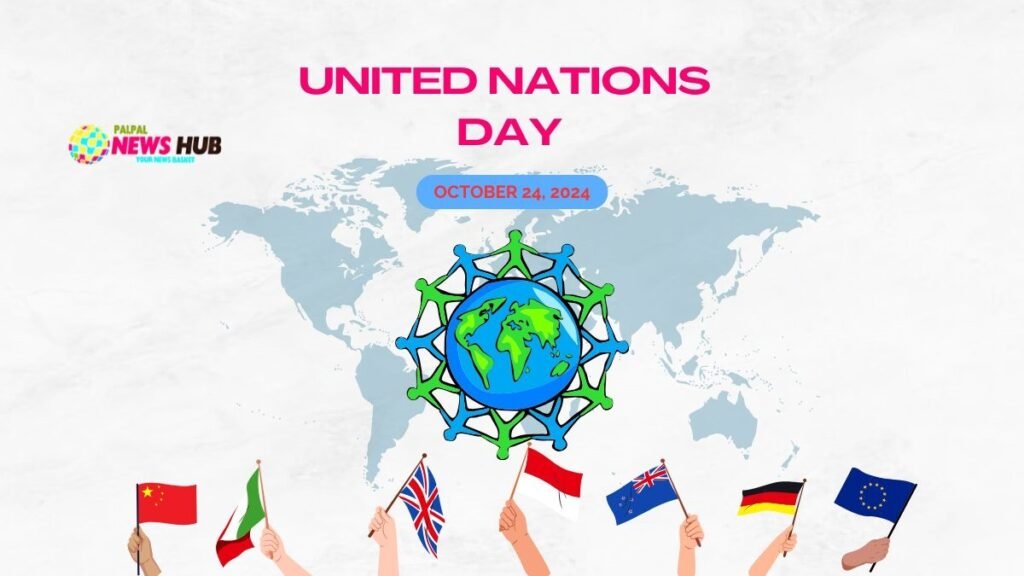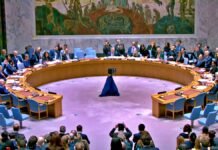
October 24, 2024 Today, the world comes together to celebrate United Nations Day, commemorating the founding of this global organization 79 years ago. While nations reflect on the significance of the UN, many are asking critical questions: Why was the UN created? What is this year’s theme? And more importantly, is the UN living up to its lofty goals of peace, security, and cooperation? As we explore the historical context, objectives, and current challenges of the UN, these questions remain at the forefront of the global conversation.
The Birth of the United Nations: A Post-War Mission for Peace
The United Nations was born out of the ashes of the Second World War, a conflict that left much of the world in ruin. On October 24, 1945, just after Japan’s devastation from atomic bombings and the emergence of the United States as a dominant superpower, 51 nations came together to form an international body that would prevent another such global catastrophe. Their goal was clear: to ensure that the powerful nations did not become tyrannical and that smaller countries were not overrun. They sought to build a system where diplomacy would prevail over war, and peace could be sustained globally.
This Year’s Theme: Sustainable Solutions for Inclusive Development
The theme for United Nations Day 2024 focuses on “Sustainable Solutions for Inclusive Development”. As global challenges like climate change, economic inequality, and geopolitical tensions mount, the UN aims to promote development strategies that leave no one behind, ensuring that prosperity is shared among all nations and peoples.
The Structure of the United Nations: Six Pillars of Global Governance
Today, the UN boasts 193 member countries, a far cry from the original 51. The organization operates through six key organs:
- United Nations General Assembly – The main deliberative body where all member states discuss global issues.
- United Nations Security Council – Tasked with maintaining international peace and security, it has the power to impose sanctions or authorize military action.
- United Nations Economic and Social Council – Focuses on promoting international economic and social cooperation.
- United Nations Trusteeship Council – Once crucial for overseeing decolonization, it is now largely inactive.
- International Court of Justice – Settles legal disputes between states and advises on international legal matters.
- United Nations Secretariat – Carries out the day-to-day work of the UN, led by the Secretary-General.
Why Was the UN Founded? The Promise of Peace in a Fractured World
The UN’s founding was driven by the desire to prevent the horrors of another world war. Following the devastation of World War II, particularly the unprecedented destruction caused by nuclear weapons, the world was desperate for a system that could maintain peace. The UN was envisioned as the answer a place where nations could resolve their disputes without resorting to violence and where dialogue, negotiation, and cooperation would prevail. Over time, the number of member states swelled to 193, representing nearly every country in the world.
UN’s Objectives: Lofty Ideals with Complex Realities
At its core, the UN has several key objectives:
- Maintaining world peace and preventing conflicts.
- Fostering international cooperation and resolving disputes through diplomacy.
- Promoting human rights, social progress, and the protection of the environment.
- Addressing global economic, social, cultural, and humanitarian challenges.
The UN’s mandate extends beyond peacekeeping. It also seeks to build friendly relations between countries, promote respect for human rights, and act as a platform for cooperation on issues ranging from poverty to climate change.
Has the UN Fallen Short of Expectations? A Critique of Recent Failures
While the UN’s goals are noble, its ability to fulfill them is increasingly questioned. Over the past two years, the Russia-Ukraine war has raged on with no resolution in sight, casting doubt on the UN’s power to mediate or halt conflicts. Similarly, the unfolding crisis in the Middle East, with civilian casualties mounting, has led many to wonder if the UN is truly equipped to handle today’s geopolitical crises.
These failures raise concerns that the UN is failing to live up to its original mission. Despite numerous efforts, peacekeeping operations and diplomatic interventions have often been slow, and critics argue that the organization’s bureaucratic structure and the veto powers of major nations, especially in the Security Council, paralyze its effectiveness.

Looking Forward: Can the UN Evolve to Meet Global Challenges?
As the world observes United Nations Day in 2024, the theme of sustainable solutions is a poignant reminder of the urgent need for inclusive and equitable development. However, the deeper question remains: Can the UN evolve to meet the ever-growing list of global challenges? The organization has faced criticism for its slow responses to humanitarian crises, inability to prevent conflicts, and struggles to adapt to a world where climate change, economic inequality, and cybersecurity are just as threatening as conventional warfare.
The coming years will determine whether the UN can reform and remain relevant or if it will continue to face increasing skepticism about its role in the modern world.





















































